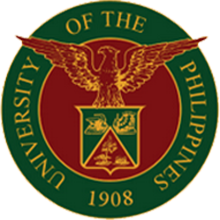Presentations
The Philippine Performance Archive Project on Cultural Performance: Keyword analysis, semantic framing, and collection of data,
at
Conference on Digital Humanities 2017, The Open University of Hong Kong, Hong Kong,
Thursday, June 1, 2017
Cultural performances and local vocabularies: The case of the Philippine Performance Archive Project,
at
Lectures on Archiving Cultural Performances in the Philippines: Benefits and Dilemmas, University of Nueva Caceres, Naga City,
Thursday, September 8, 2016
Ang varayti ng Tagalog sa Batangas: Karanasan ng bayan ng San Nicolas,
at
Tagalog dialectologies, Museong Pambayan ng Morong, Rizal,
Saturday, August 27, 2016
Linguistics and language studies in the ASEAN Socio-Cultural Community Blueprint,
at
Southeast Asian Studies Regional Exchange Program (SEASREP) 20th Anniversary Conference, Universitas Gadjah Mada, Yogyakarta,
Thursday, November 5, 2015
Revisiting Inonhan: A sequel to the dialectology of Inonhan in Carabao Island, Romblon,
at
12th Philippine Linguistics Congress, University of the Philippines Diliman, Quezon City,
Thursday, November 27, 2014
Comparative analysis of policies on language of education in Malaysia and the Philippines,
at
International Conference on Language and Culture, University of the Philippines Diliman, Quezon City,
Thursday, November 20, 2014
Rebabelizing the Philippines: On the Ayta Mag-antsi language,
at
7th National Social Science Congress, PSSCenter, Quezon City,
Friday, May 31, 2013
Reproblematizing language (in) education in the Philippines: A multidisciplinary perspective,
at
The 5th ASEAN Linguistics Conference, Dewan Bahasa dan Pustaka, Kuala Lumpur,
Thursday, December 22, 2011
Growth and advancement of Filipino as a language (of education): The case of the UP Department of Linguistics,
at
National Conference on Research in Teacher Education 2011, University of the Philippines Diliman, Quezon City,
Thursday, October 20, 2011
Mashed media: Attitudes of secondary-school students toward English, Filipino, and their mother tongue,
at
The 14th English in Southeast Asia Conference, University of Macau, Macau,
Thursday, December 9, 2010
